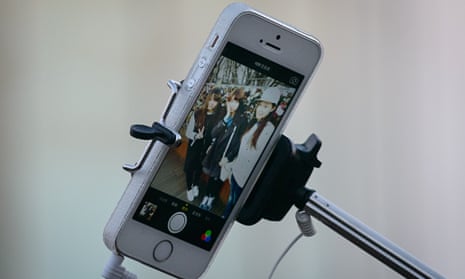The advertising industry is obsessed with millennials. We talk endlessly about how they behave, how to reach them and how to make them feel at home in the workplace. We treat them like a new genre of humanity. We’ve become distracted by the shininess of the new crowd. I’m so bored of it, thank goodness we’re on to something new, gen Z. God help us.
You want to know a few things about millennials? They generally have very little money. The over-50s have 80% of the developed world’s wealth and yet we make zero effort to talk to them.
Millennials hold nothing like the influence that we think they have. I know this goes against our gut, but did selfie sticks start with teens? Did LinkedIn, Uber, Airbnb, Box, Twitter or Vine start with millennials? Maybe, just targeting millennials isn’t the way to guarantee success and network effect like we all think.
They are the most fickle audience you can imagine. From Candy Crush to FarmVille and Angry Birds to Flappy Bird, we’re in a world of fast fads which few can make money from.
But above all else … what on earth is a millennial? We’ve taken a global, wildly diverse group of people and bundled them together in nonsensical trends presentations that we all nod in agreement at because we want to make sense of the world. The only thing clear about millennials is that they are just about as unique as everyone else. Yet as human beings designed to see patterns, to find order in chaos, we find it difficult to accept that life is random, nonsensical and untidy. We try hard with Myers-Briggs, horoscopes, feng shui, superstitions, tarot and a million other things to somehow come close to making sense of it all and it’s all total crap. We kid ourselves otherwise; Rorschach had a point.
But it was forgivable. In the past, marketing was based on finding commonalities and probabilities to form archetypes, personas and target audiences. Generalisations were the structural elements that built the tower that is marketing. It was all we had.
Today, technology is changing this. We used to buy media – we’d buy car shows because that’s where people interested in cars would be. But it’s about to change. Now via behavioural targeting, programmatic buying and soon addressable TV we can buy media against peoples’ interests. We can target people who demonstrably like cars and in places outside of car shows. It’s audience buying not media buying. Soon this will change the way that TV shows are commissioned. No longer will TV programmes be created to attract specific interests that make it easy to sell ads against (a response to how do we get and audience that’s interested in cars, or home renovation) but more simply as great content to get people interested, to attract all eyeballs not just slithers.
As technology develops we will change our entire mindsets from buying audiences to people. Niche brands for the rich or special interest categories can use TV to connect only with the right people for those brands. Adverts will be served sequentially to move people through the purchase funnel and tell stories (do we still talk about storytelling or was that 2014?) In the future, advanced technology and better data from the internet of things (IoT) will enable us to buy micro-moments or contexts in peoples lives such as the time they are running late or the moment they have finished a run. It’s a move from big data to intimate data. From cookies to UDID systems and probabilistic determinism, technology will soon change the foundations of media agencies, creative agencies and content creators.
For the time being, please let’s stop this mindlessness. Let’s stop with quotes such as “Millennial leaders feel like they have something to prove” or “They rely heavily on tech”. These are true, but are they uniquely true to millennials?
The modern age hasn’t brought about a generation of people who act totally differently – it makes everyone act differently. What’s most interesting about new technology is the new behaviours it brings about. We’re all now impatient, demanding, and with fleeting attention spans. We all now live in an age where technology is making new things possible, so how about we use it to make advertising better?
Tom Goodwin is the senior vice president of strategy and innovation for Havas Media. He’s a speaker at this year’s Changing Media Summit
More like this
Ditch irrelevant mobile-first strategies and put people first
Welcome to the future of advertising, where the word digital is redundant
The future of marketing depends on ideas, not tinkering with technology
To get weekly news analysis, job alerts and event notifications direct to your inbox, sign up free for Media Network membership.
All Guardian Media Network content is editorially independent except for pieces labelled “Brought to you by” – find out more here.
